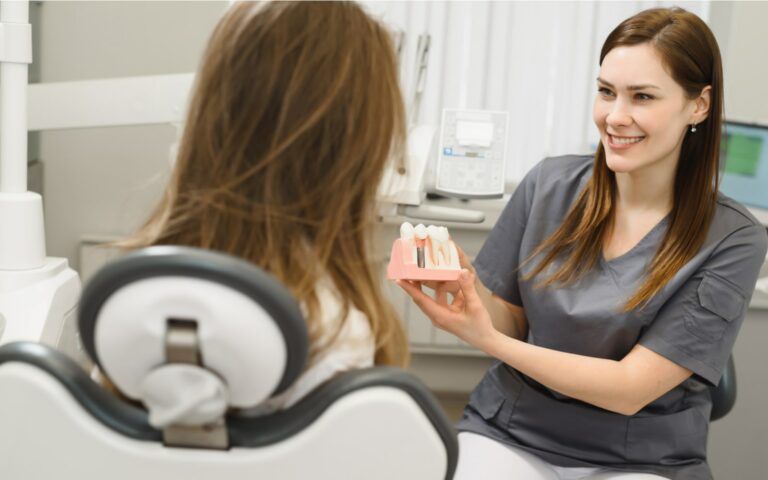For some young adults, there’s nothing quite as traumatic as losing a tooth. The social impact alone can be enough for the very idea to cause significant stress. When the oral health implications of a missing tooth are considered, the situation gets serious. Unfortunately for those still in their teens, implants generally aren’t an option. Numerous complications can occur due to their still-developing jaw. This may mean that other short-term solutions need to be considered in the meantime. Once they can receive an implant, however, there’s no better solution for a missing tooth.
Understanding The Impact Of Adult Tooth Loss In Youth
The biggest concern that young patients face regarding losing a tooth is developmental impact. Our jaw depends on having a complete set of teeth to develop correctly. The muscles, cheeks, tongue, and particularly the teeth are all essential. That’s why losing a tooth is a critical situation, especially when we’re young. In patients for whom receiving an implant is impossible; your dentist will take other steps to aid development.
One of the first options for aiding a developing jaw is orthodontics. Myofunctional therapy is another treatment that has shown significant success. This treatment includes strengthening exercises that aid the jaw in developing correctly. When performed successfully, the jaw will be able to accept implants when the patient comes of age.
In patients old enough to receive an implant, they’re the best possible option. Current data shows that dental implant posts are capable of lasting more than 50 years. This is more than enough lifespan for even the youngest patients to benefit. Throughout this period, the crown restoration will have to be updated several times. However, the implant itself will aid in strengthening the jaw. Not only that, but the patient’s vitality will aid in reducing their risk of developing peri-implantitis.
The Benefit Of Getting Implants Young
Once all of the proper considerations have been made, there’s a significant benefit to young adults in getting implants. Their oral health tends to be in better condition than that of older patients receiving implants. Their immune system reduces the risk of infection and speeds healing. The risk of peri-implantitis, the leading cause of implant failure, is shown to be reduced in these younger patients.
Other benefits experienced by younger implant patients include:
- Reduced need for bone grafts
- A longer-lasting, more natural smile
- Faster healing
Contact your dental provider immediately if you want to know if dental implants are a good solution for you or your child. They’ll arrange for an exam and consultation to determine if they will be appropriate. This exam can include covering your dental history as well as dental imaging to uncover hidden concerns. They’ll provide guidance on the proper steps to getting implants. For younger patients, this may mean alternative treatments to ensure the jaw is adequately prepared. Young adults may be scheduled to receive their implants as soon as possible!




